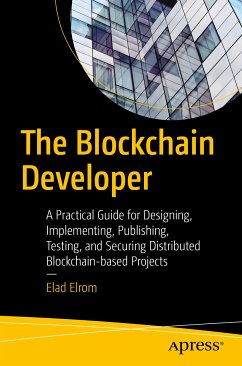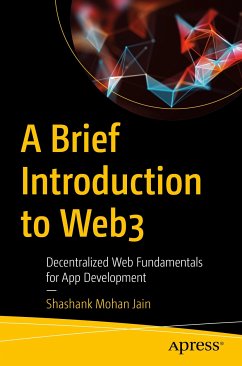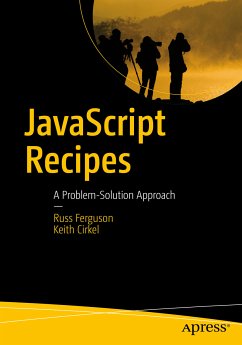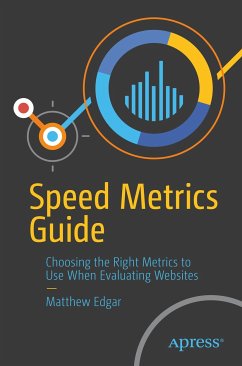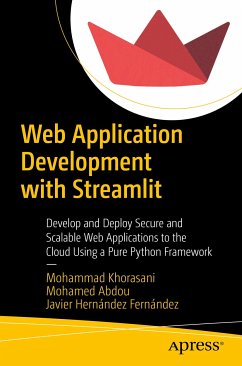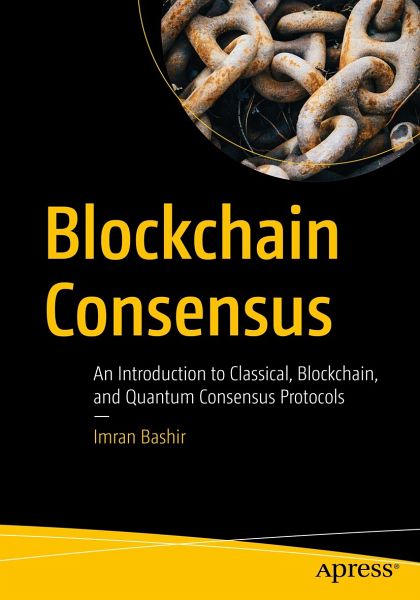
Blockchain Consensus (eBook, PDF)
An Introduction to Classical, Blockchain, and Quantum Consensus Protocols
Versandkostenfrei!
Sofort per Download lieferbar
50,95 €
inkl. MwSt.
Weitere Ausgaben:

PAYBACK Punkte
25 °P sammeln!
This book is your comprehensive guide to understanding Blockchain and Blockchain consensus algorithms. It covers distributed systems, distributed consensus, and relevant system models. And you'll explore how classical and modern consensus algorithms work. The book also covers quantum consensus and explains the role that quantum computing plays in distributed systems.Consensus protocols allow participants in distributed systems to agree on a common value, despite faults. It's a fundamentally important construct in distributed systems. As a result of rigorous and ground-breaking research over th...
This book is your comprehensive guide to understanding Blockchain and Blockchain consensus algorithms. It covers distributed systems, distributed consensus, and relevant system models. And you'll explore how classical and modern consensus algorithms work. The book also covers quantum consensus and explains the role that quantum computing plays in distributed systems.
Consensus protocols allow participants in distributed systems to agree on a common value, despite faults. It's a fundamentally important construct in distributed systems. As a result of rigorous and ground-breaking research over the last four decades, many consensus mechanisms have been developed and are used in the industry today. However, with the advent of Blockchain technology, a renewed interest has arisen in this area, resulting in more research and innovation.
The first Blockchain, Bitcoin, was invented in 2008 and introduced a novel consensus protocol called Nakamoto consensus, a solution to the Byzantine General's problem formulated almost 30 years ago. Since the introduction of Bitcoin, the interest in Blockchain and consensus protocols has risen exponentially. As a result, researchers from academia and industry have proposed many new consensus mechanisms. While fundamental goals and some techniques remain the same as established classical protocols, these modern protocols introduce innovative methods to achieve consensus in Blockchain. Some classical algorithms have been modified to make them suitable for Blockchain and some new protocols have been developed.
This book is a detailed account of classical distributed consensus and Blockchain consensus algorithms. It explains why and how cryptocurrencies and Blockchain remain secure and decentralized without depending on a trusted third party. In addition, you'll learn how Blockchain can endure, even with hundreds or thousands of participants, out of which some might be malicious. The book introduces quantum consensus, which deals with the problem of reaching agreement in quantum networks and how to enhance classical results.
What You Will Learn
- Understand distributed systems, distributed consensus, and relevant system models and protocols
- Understand Blockchain and Blockchain consensus algorithms
- Know how classical and modern consensus algorithms work
- Know the inner workings of Paxos, RAFT, PBFT, HotStuff, proof of work, proof of stake, GRANDPA, Casper, proof of history, and other consensus protocols
- Understand quantum Byzantine agreement and quantum consensus
Who This Book Is For
Distributed systems and Blockchain students and researchers, Blockchain practitioners, architects, designers, product managers, and developers
This book targets many audiences as well as those with curious minds. It explains the classical consensus mechanisms, Blockchain age consensus protocols, and the latest developments in distributed consensus. The book does not assume any advanced knowledge of Blockchain or distributed systems, but a general understanding of computing and appreciation of Blockchain technology is helpful. Early chapters provide the necessary background to read and understanding consensus-related content quickly.
Readers who already understand classical consensus protocols and distributed systems but want to learn about Blockchain consensus will find the book helpful as it covers Blockchain age protocols in detail. Readers who have come to the Blockchain world without any, or with little, background in distributed systems or classical consensus protocols will find this book equally helpful as it provides a solid understanding of classical consensus protocols.
If you have no experience in Blockchain or don't understand distributed computing in general, this book will give you a solid understanding of both subjects and enable you to conduct further research in this exciting area of distributed computing.
Dieser Download kann aus rechtlichen Gründen nur mit Rechnungsadresse in A, B, BG, CY, CZ, D, DK, EW, E, FIN, F, GR, HR, H, IRL, I, LT, L, LR, M, NL, PL, P, R, S, SLO, SK ausgeliefert werden.
Alle Preise in Euro und inkl. der gesetzl. MwSt. | Innerhalb Deutschlands liefern wir preisgebundene Bücher versandkostenfrei. Weitere Informationen: bitte hier klicken
Support
Bitte wähle dein Anliegen aus:
Rechnungen
Bestellstatus
Retourenschein
Storno



